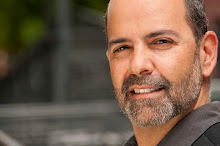 The material in this book is part of a very simple curriculum that any teacher can use with pretty much any kind of students. Frequently I break it into two 90 minute chunks: Part 1 is an intro and about shooting; Part 2 is about editing and finishing. Students can have individual or shared camcorders, and at the end of Part 1, they can shoot a project that you set up.*
The material in this book is part of a very simple curriculum that any teacher can use with pretty much any kind of students. Frequently I break it into two 90 minute chunks: Part 1 is an intro and about shooting; Part 2 is about editing and finishing. Students can have individual or shared camcorders, and at the end of Part 1, they can shoot a project that you set up.* Part 2 often culminates with them editing the material they shot in part 1. This version of the class can be done in as little as 3 hours and a little better at 4-5. This, by the way, is how I taught the kids in Beijing back in 2003. I had a small powerpoint presentation and I did a fair amount of pantomime. The kids got it quickly.
 That Beijing Experiment was for the OUMU foundation. In 2002 OUMU was started for connecting kids in the US and China. Kids were given camcorders and computers and told to make videos to send to each other, like pen pals. One of the videos came back from China and it was something like 40 minutes of a camera pointed at a parade. So in 2003 OUMU asked me to go to China and see if I could teach groups of kids at 4 separate high schools. In short order they were making videos.
That Beijing Experiment was for the OUMU foundation. In 2002 OUMU was started for connecting kids in the US and China. Kids were given camcorders and computers and told to make videos to send to each other, like pen pals. One of the videos came back from China and it was something like 40 minutes of a camera pointed at a parade. So in 2003 OUMU asked me to go to China and see if I could teach groups of kids at 4 separate high schools. In short order they were making videos.Here's one of them: "Quiet Corners Along the Noisy Street"
Here's another: "City Sports and Games"
But there are many ways to parse the curriculum in this book for a class. It could be a weekend program; it could be a one-hour class every day for a week, or once a week for a semester. I also have done a lecture version (no hands on) at Macworld and at various Apple stores, which only takes 50 minutes, and where I shoot and edit a video right there, as part of the explanation.
* The projects I set up to allow students to practice sketch shooting usually involve some kind of repetitive simple game: chess or checkers work very well. Tic-tac-toe is okay as well, if you need to improvise with no props. Ping pong works, too, of course. Just pick two students and have them play a bunch while you're walking around explaining coverage.






No comments:
Post a Comment